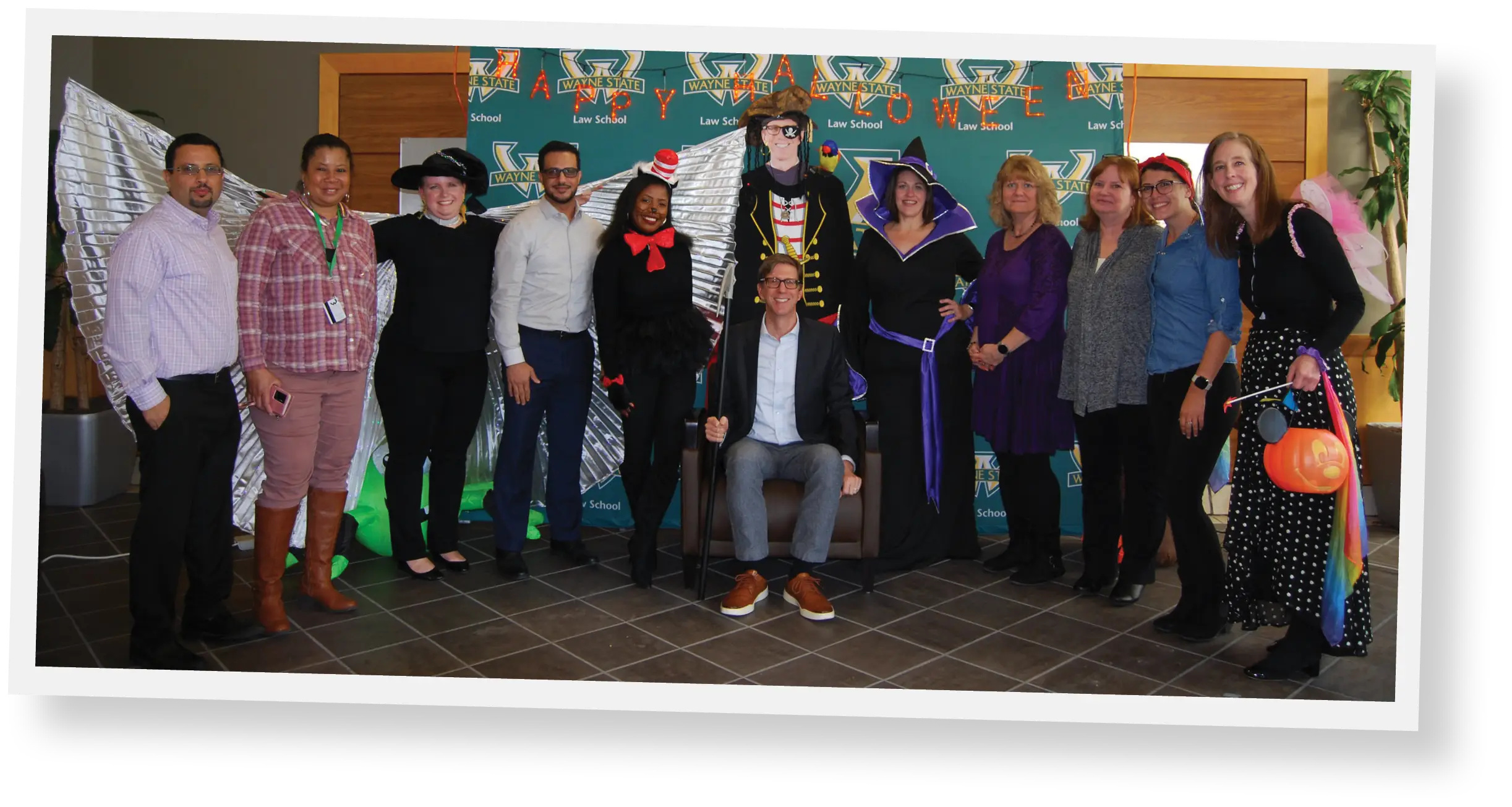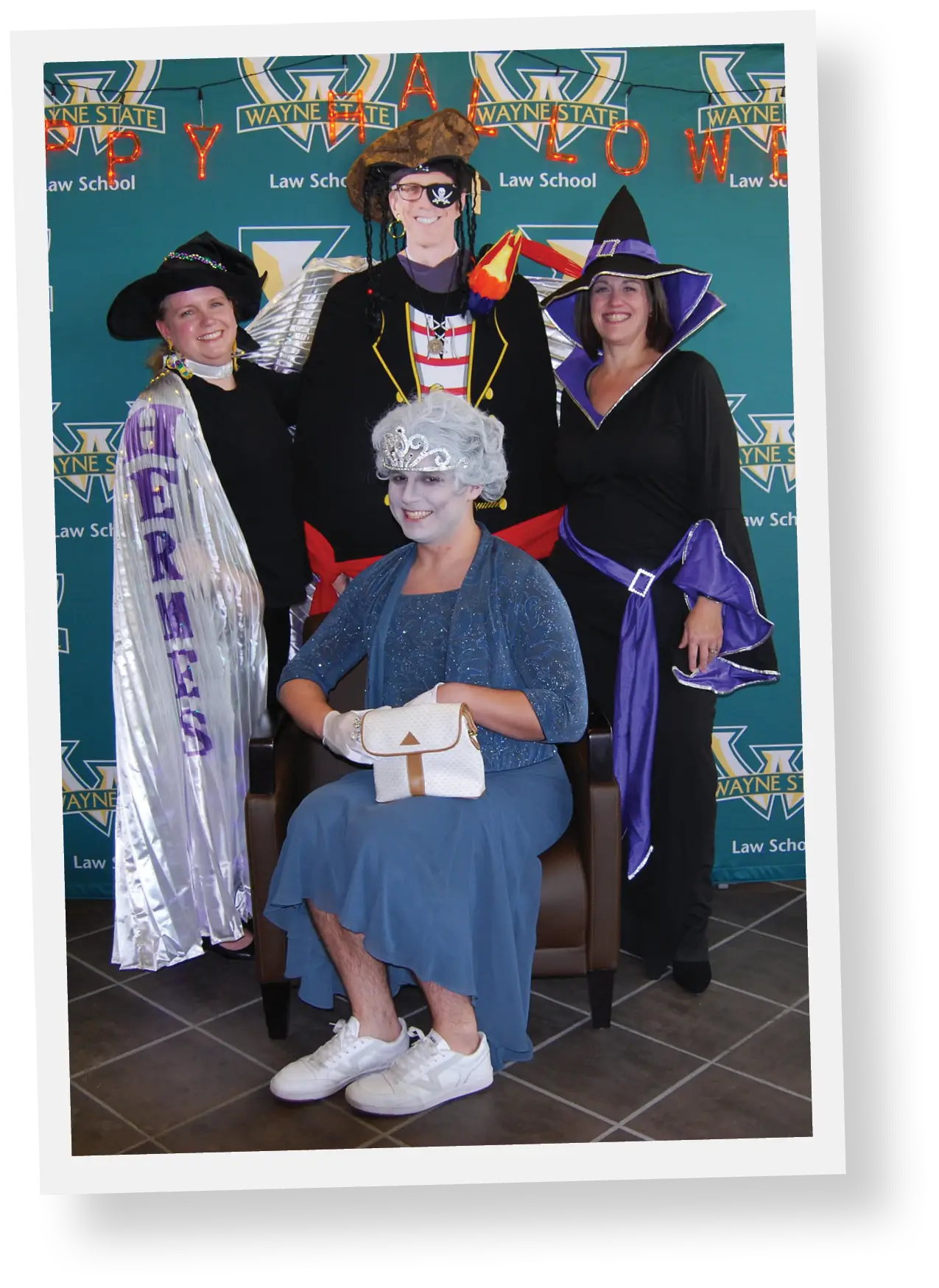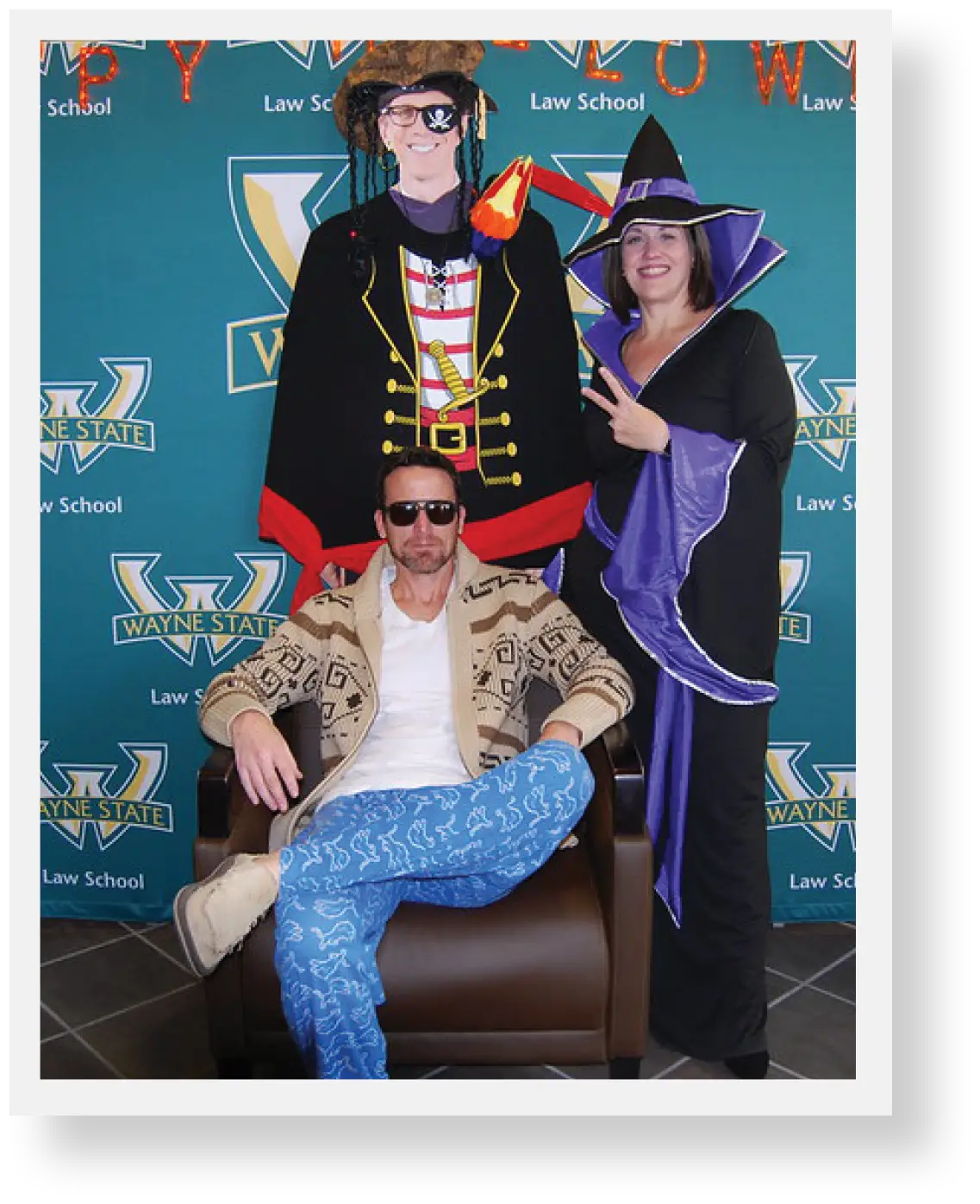Wayne Lawyer Summer 2023, Volume 38, No. 1

Summer 2023, Volume 38, No. 1
Summit of success

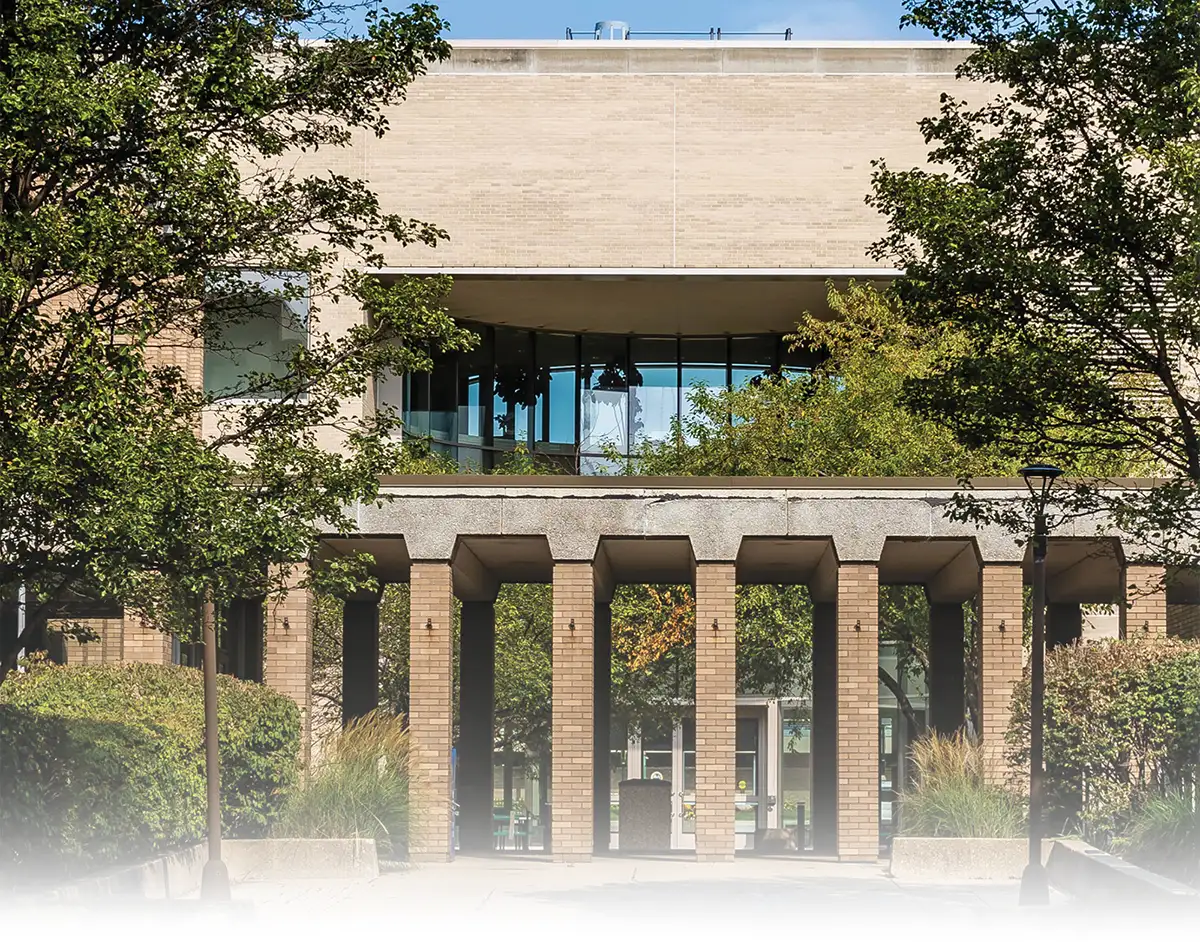

Candyce Ewing Abbatt ’83
C. David Bargamian ’90
Maurice S. Binkow
Richard Burstein ’69
Albert Dib ’80
Krishna S. Dighe ’87
Hon. Edward Ewell Jr. ’85
Tyrone C. Fahner ’68
Erin C. Gianopoulos ’21
Hon. Elizabeth Gleicher ’79
David M. Hayes ’67
David M. Hempstead ’75
Paul W. Hines ’73
John A. Hubbard ’86
Kathryn J. Humphrey ’80
Shirley A. Kaigler, LL.M. ’93
Hon. Marilyn Kelly ’71
Thomas G. Kienbaum ’68
E. Powell Miller ’86
Kenneth F. Neuman ’86
Michael L. Pitt ’74
Steven G. Stancroff ’90
Adam B. Strauss ’98
Peter Sugar ’70
I.W. Winsten ’79
Nathaniel R. Wolf ’97
M. Roy Wilson, president
Mark Gaffney, chair
Shirley Stancato, vice chair
Danielle Atkinson
Bryan C. Barnhill II
Michael Busuito
Marilyn Kelly
Anil Kumar
Terri Lynn Land
M. Roy Wilson, ex officio
This magazine is a publication of Wayne Law’s Marketing and Communications office.
Editors: Jennifer Kennedy, Meg Mathis
Contributors: Biba Adams, Gregory Fox, Charles Kadado, Sheila Pursglove, Jessica Taylor, Nikki Taylor-Vargo
Page designer: Matthew Balcer
Photography: Bureau Detroit, Paul Hitzelberger, Jessica Taylor
Wayne Lawyer
© 2023 Wayne State University Law School
lawcommunications@wayne.edu
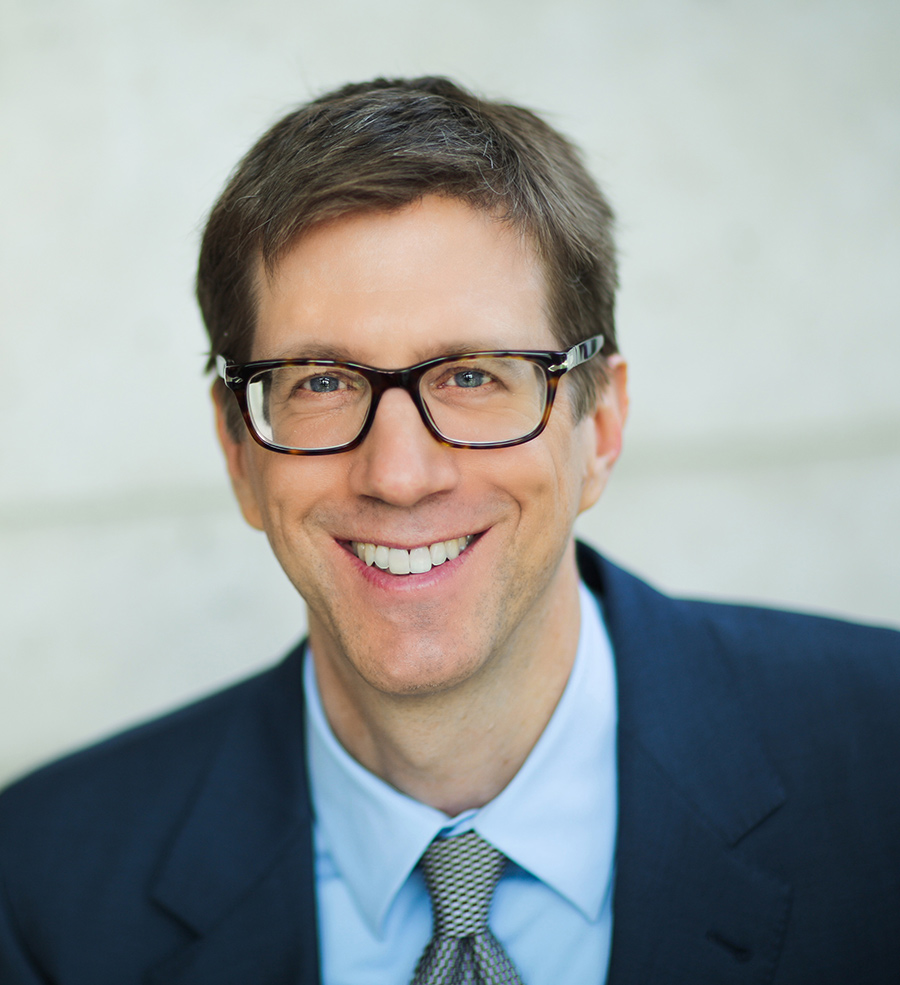
Dear friends,
For the sixth consecutive year, Wayne Law has maintained its high standing in U.S. News & World Report’s law school rankings. This year, we moved up two more spots, bringing us to No. 56 in the country, our highest rank and a total jump of 44 spots over the last six years — making history for the Law School and raising the bar for excellence in legal education. And for the ninth consecutive year, Wayne Law has been recognized as a Best Value Law School by The National Jurist and preLaw magazine.
We are especially proud that we continue to rank very high nationally in the value we provide to our students. Wayne Law is the No. 7 public law school in the country, and No. 14 among all law schools, by ratio of its graduates’ debt to starting salary, an important measure of the affordability and worth of an excellent legal education.
Our faculty, students and alumni continue to inspire us. A great example is our Jessup International Moot Court Team, which marked a decade of dominance in international competition this year. Read the feature story beginning on Page 8. And we all know that with a Wayne Law degree comes a set of skills that can transcend industries and expectations, across the nation and around the globe. Check out our cover story on select alumni, beginning on Page 18, to see how transformative a Wayne Law education can be.
I am grateful to every member of the Wayne Law community for making the Law School the distinctive and special place that it is. As we look toward the next academic year and beyond, I look forward to working with all of you to make the Law School — and this community — ever stronger.
Sincerely,
Richard A. Bierschbach
Dean and John W. Reed Professor of Law
U.S. News & World Report rankings 2023-24
U.S. News & World Report derived each school’s overall rank by scoring it on 10 distinct factors, including placement success and first-time bar passage, employment outcomes 10 months after graduation, two-year bar passage rates, selectivity, faculty resources, and more. These scores were standardized so they were compared with the means and standard deviations among all other ranked schools.
Wayne Law is Detroit’s only public law school and consistently has the lowest tuition in Michigan. The National Jurist and preLaw magazines have ranked Wayne Law a Best Value Law School for nine consecutive years.
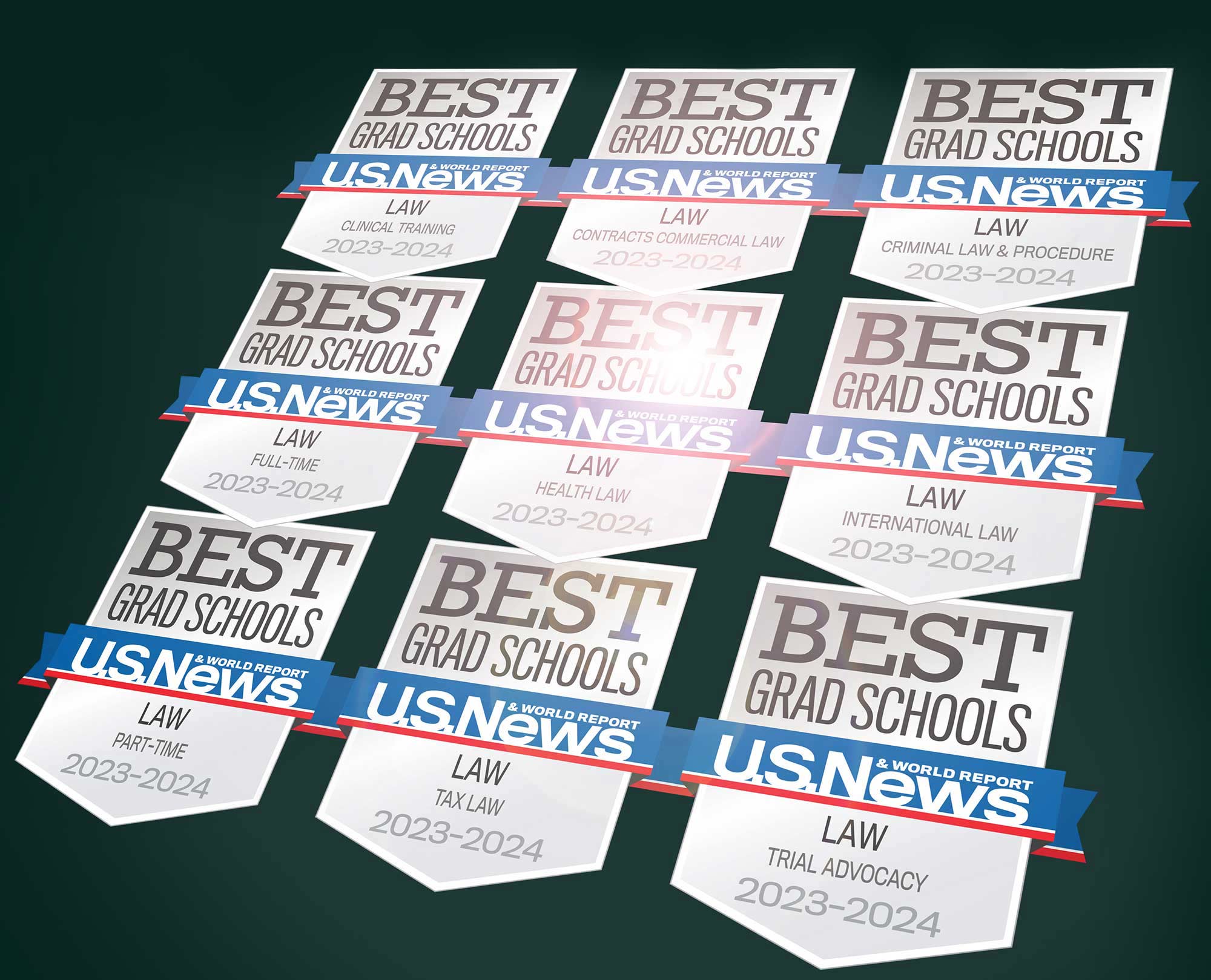
2020 and 2021 graduation celebrations
at the Detroit Yacht Club
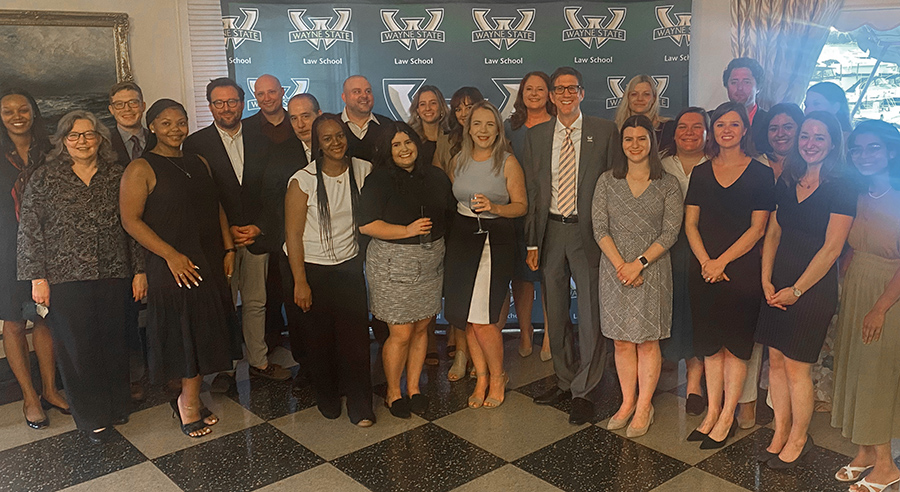
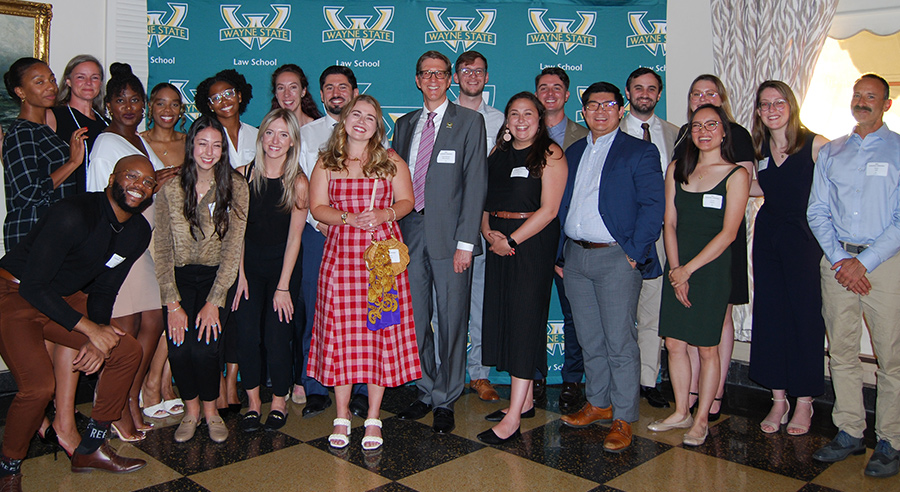
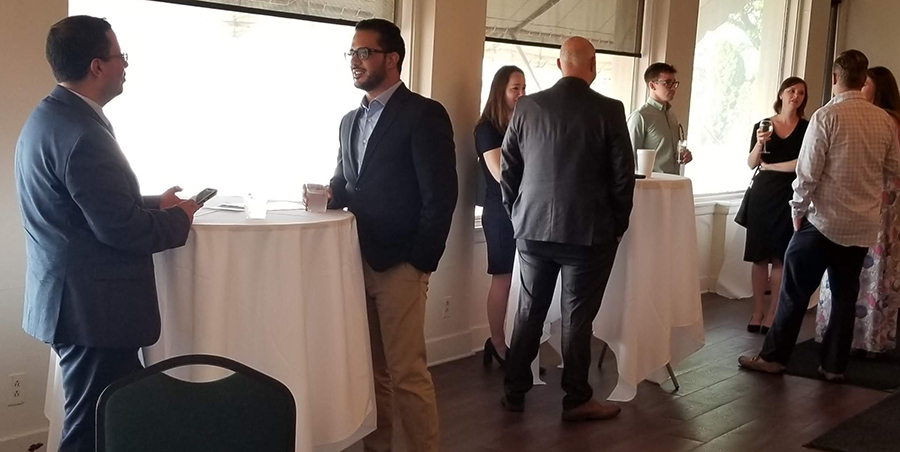
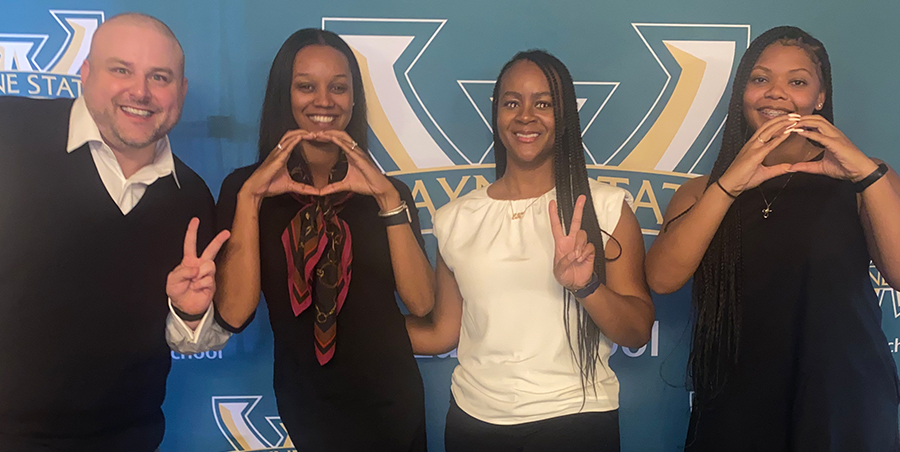
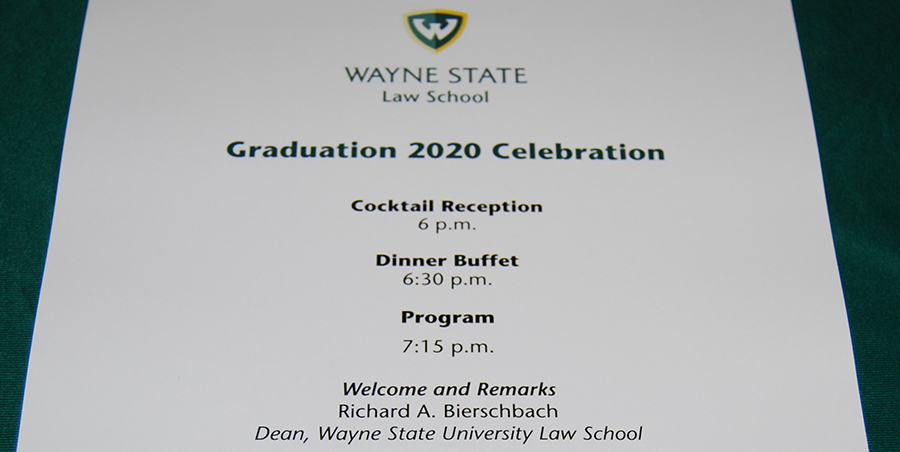
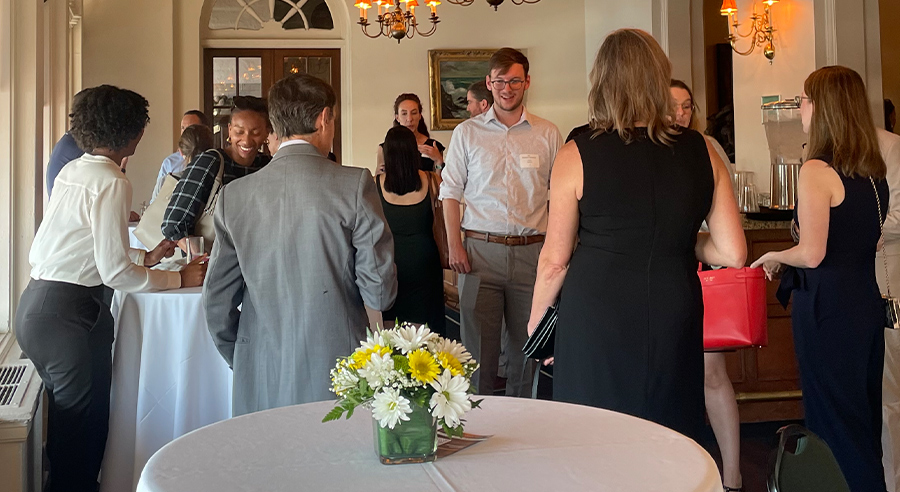
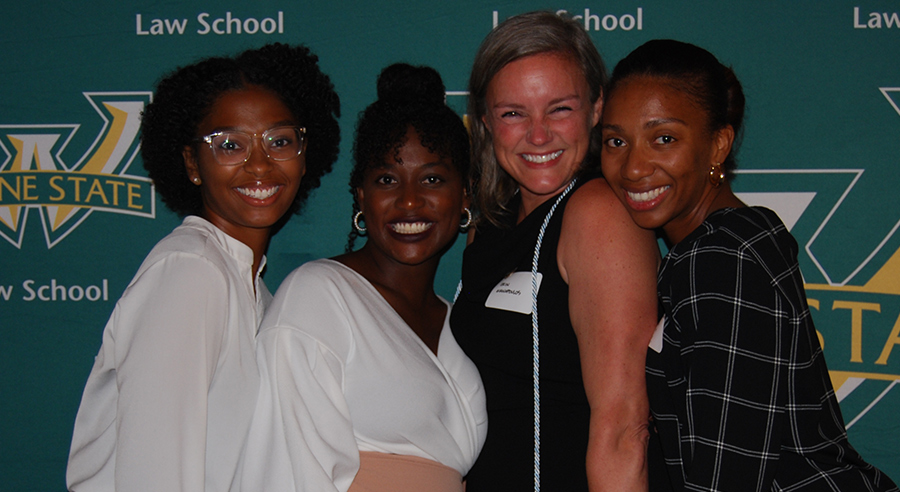
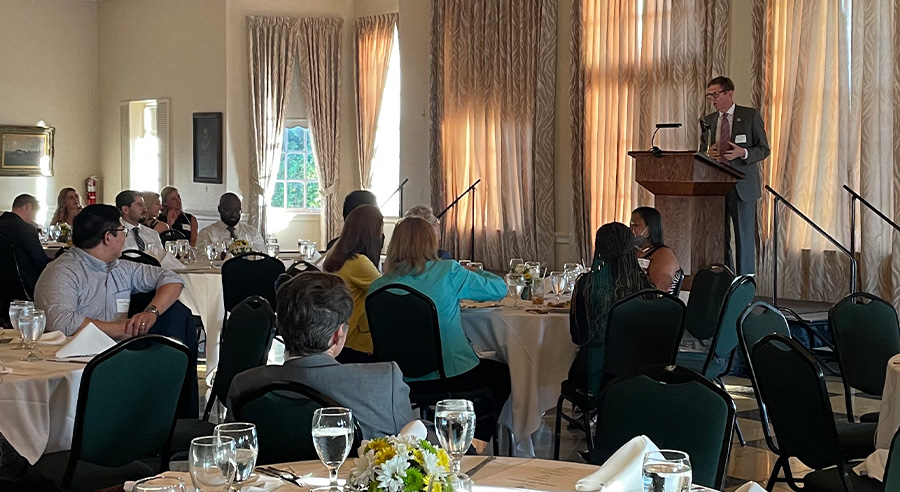


A decade of dominance

hen Professor Gregory H. Fox arrived at the Law School in 2002, he began recruiting students for the Philip C. Jessup International Law Moot Court Competition. The oldest of its kind, the competition began in 1960 and simulates a case before the International Court of Justice, also known as the World Court. The International Court of Justice is the supreme judicial organ of the United Nations system and can hear cases between countries concerning any issue of international law. Recent issues debated in the Jessup include self-defense against terrorist groups, diplomatic immunity, environmental degradation, cyberattacks and foreign election subversion.
The Jessup is also the world’s largest moot court competition, hosting roughly 3,000 law students from 700 law schools in over 100 countries. Each country holds a national tournament to determine which schools will advance to the international rounds held in Washington, D.C. In the United States, nearly 100 law schools participate each year. Of these, 12 can qualify for the international rounds, with two from each of six geographic regions. Wayne Law is in the Midwest region.
■ FEATURED PROGRAMS
The Wayne State Board of Governors approved the recommendation made by the Academic Affairs Committee to establish a bachelor of arts in law program. Beginning in fall 2023, the B.A will be offered through the College of Liberal Arts and Sciences. The program will be partnered with academic units from across the Midtown campus.
Provost and Senior Vice President for Academic Affairs Mark Kornbluh told the committee that the B.A. in law is designed to be an intradisciplinary program that will provide students with a broad-based liberal arts degree.
“We started a minor in law three or four years ago and it’s grown to be one of the largest minors on the main campus,” Kornbluh said. “We see the student interest in this area, so I’m very excited that we’re proposing this.”
■ FEATURED PROGRAMS
Wayne Law explores transgender health equity and the law during fall symposium
Wayne Law explores transgender health equity and the law during fall symposium
The symposium unveiled a special issue of the Journal of Law, Medicine & Ethics devoted to transgender health equity and the law, with panels from authors and local researchers on a broad array of topics, including policy as a driver of health equity, access to appropriate health care, reproductive health and international human rights.
Admiral Rachel L. Levine, U.S. assistant secretary for health, provided opening remarks at the symposium.
According to Associate Professor of Law and Social Work Heather Walter-McCabe, 2022 saw the highest number of bills introduced aimed at LGBTQ+ populations in recent history, with many of them targeting transgender populations. October 2022 saw the introduction of House Bill 6454, which, if passed, would make seeking gender-affirming care for youth child abuse potentially punishable by up to life in prison.
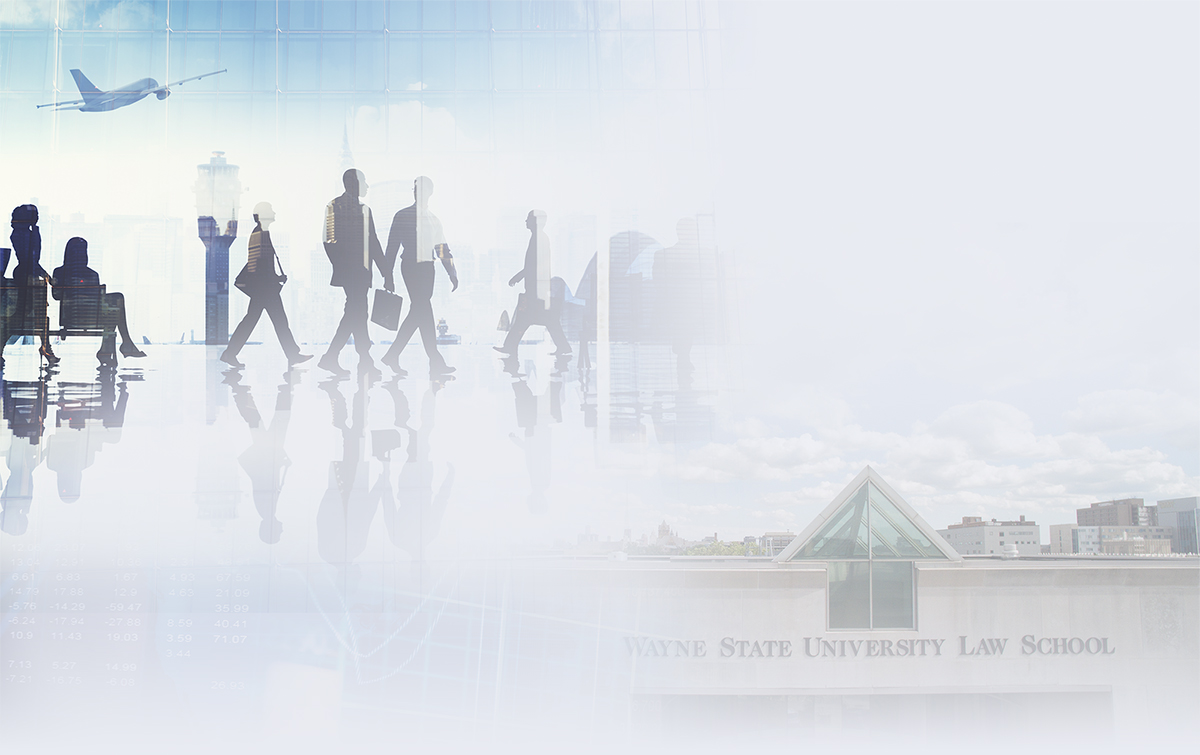
Summit of success
■ Student Spotlight
Overcoming adversity
Shea Mace has found her calling at Wayne Law
By Sheila Pursglove
Legal News
In her late teens, Shea Mace became addicted to drugs and alcohol to cope with childhood traumas. By 22, she was homeless, hopeless and in serious legal trouble due to her substance abuse.
Fortunately, she was thrown a lifeline with the opportunity to be enrolled in the Oakland County Adult Treatment Court in lieu of serving prison time.
“I truly believe had I not been given this opportunity, I wouldn’t be alive today,” she said. “The Adult Treatment Court treated me like a human being instead of a criminal and connected me with services that gave me the tools I needed to rebuild my life.”
Mace’s personal mental health struggles, as well as those of friends and family, led her to search for answers within the field of psychology, and she earned her undergraduate degree in the subject from Wayne State University.
■ Donor Showcase
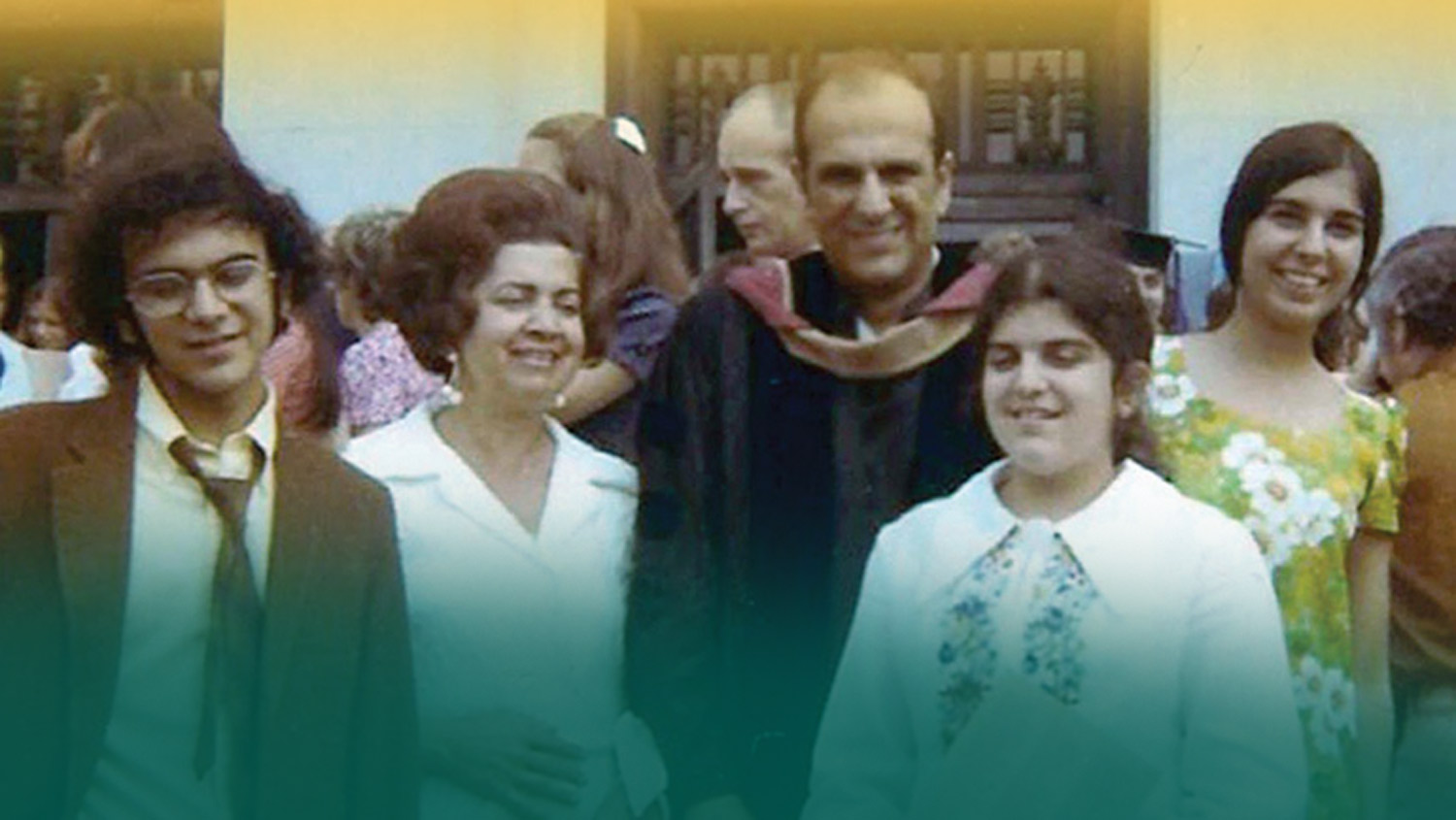
George J. Haddad ’71 with his family at the ceremony where he was awarded his juris doctorate.
A family’s drive
Haddad siblings honor parents by supporting nontraditional law students
George J. Haddad ’71 with his family at the ceremony where he was awarded his juris doctorate.
In June 1971, a green 1968 Chevy Impala decorated with yellow flowers arranged in the shape of the letters “WSU” left St. Clair Shores for Detroit’s Rackham Memorial Building, where George J. Haddad was being awarded his juris doctor from Wayne Law at the age of 48.
Studying at Wayne State University in the early ’70s was a family affair for the Haddads, as daughter Carol ’72 and son George ’74 pursued their bachelor’s while their father was in law school. The three commuted to Detroit together while mom Evelyn and youngest daughter Mary held down the fort at home, eager to hear tales about the workday.
As the Impala brought the family to the Law School Senior Convocation, its occupants beamed with pride. George had earned his J.D. while working as a full-time appellate officer for the IRS, completing a goal begun in the 1950s when he had enrolled in and then dropped out of law school to help Evelyn care for their growing family.
George’s daughter Carol noted that his accomplishment might not have been possible without financial support.
A legacy celebrated
“It was like hieroglyphics,” Harring said. “Reading timeworn cases on assumpsit and trespass … was like trying to decipher a foreign language.”
But like many first-year law students, Harring had to do — as the notorious torts standard goes — what a reasonable person would under the circumstances: He took things day by day. And Littlejohn expertly guided Harring’s class through those daunting first days.
“Teaching well is hard, but teaching first-year law students is even harder and more important,” Harring said. “Professor Littlejohn managed, in his own way, to encourage students that things will be OK — this is going to be difficult.”
Nancy Chi Cantalupo named associate dean of diversity, equity and belonging
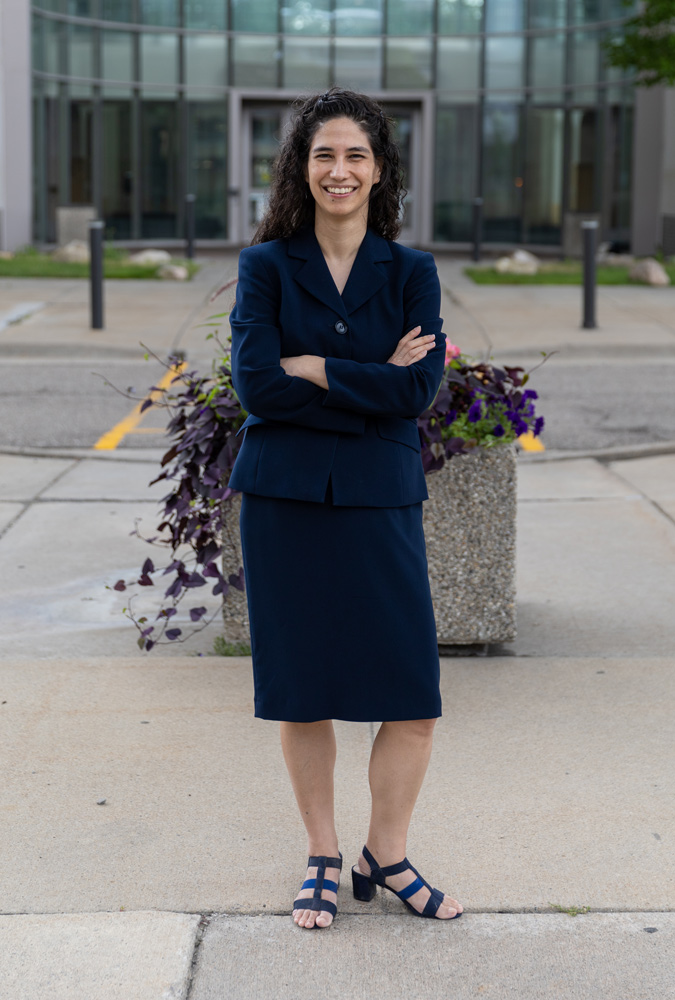
“Dean Cantalupo’s experience, talent and commitment in this role will amplify and elevate the work of every member of Wayne Law as we strive to make our school, our community and our profession diverse and equitable spaces in which everyone truly belongs,” said Richard A. Bierschbach, dean of the Law School.
Cantalupo has more than a decade of experience writing about and teaching civil rights and Title IX, and preventing discriminatory violence such as sexual harassment and gender-based violence. Her scholarship in these areas aims to give schools and those seeking to enforce civil rights protections concrete strategies to reach such goals, and several specific proposals she has made have influenced federal law in a pro-civil rights direction.
Kirsten Matoy Carlson named ABF/JPB Foundation Access to Justice Scholar for 2023-24 cohort
The Access to Justice Scholars Program promotes the next generation of scholars and supports the infrastructure of the burgeoning field of access to justice. It brings together scholars from across the country from many disciplines — including law, political science, public health and sociology — to foster discoveries and build theoretical and empirical understanding of what is happening with access to civil justice.
Carlson is one of six faculty scholars elected by an advisory committee from a highly qualified pool of applicants with diverse academic backgrounds and project proposals. The faculty scholars will bring their unique expertise to further the program’s core mission: generating impactful research on access to civil justice and translating this research into practice. The scholars’ projects will produce both discoveries to inform social scientific understandings of access to civil justice, and knowledge to inform real-world policy and reduce poverty and inequality in the United States and beyond. Carlson’s work will investigate the gaps in existing measures of outcomes and impacts for legal services delivery in Native communities in the United States.
“No Equal Justice”
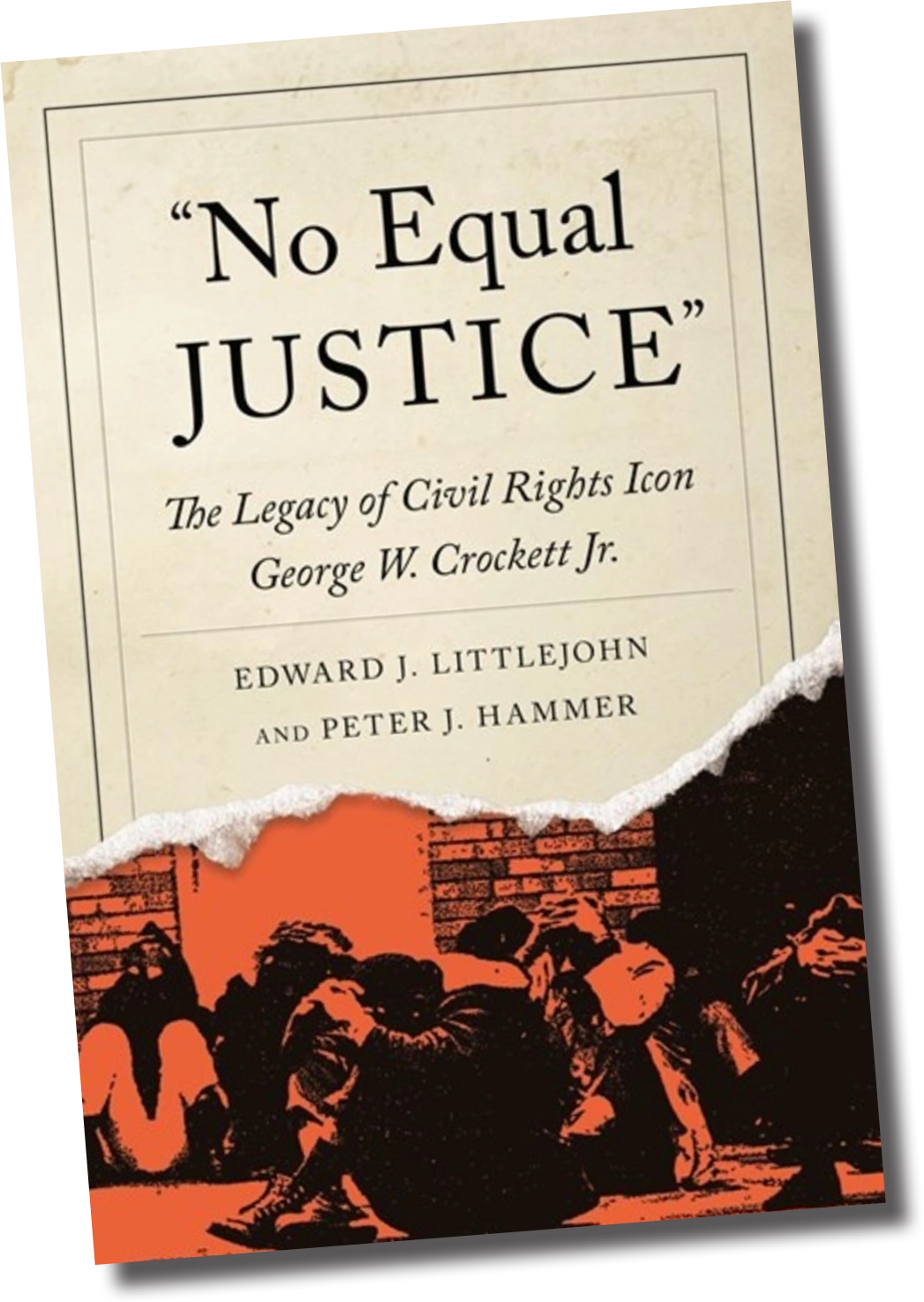
The book — which has already garnered a number of awards — begins by tracing the Crockett family history from slavery to Crockett’s admission into the University of Michigan Law School. He became one of the most senior Black lawyers in President Franklin Roosevelt’s New Deal administration and later played a central role fighting discrimination in the United Auto Workers union. In 1948, in a team of five attorneys, he was the only Black lawyer defending the constitutional rights of the leaders of the U.S. Communist Party in Dennis v. United States, the longest and most dramatic political trial in American history. At the close of the case, Crockett and his defense colleagues were summarily sentenced to prison for zealously representing their clients. He headed the National Lawyers Guild office in Jackson, Mississippi, during 1964’s Freedom Summer.
4 questions with non-J.D. program students

The latest news from Wayne Law
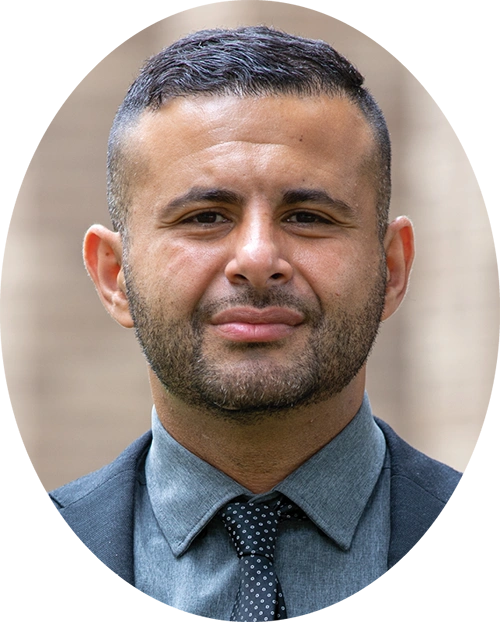
Khaled A. Beydoun
Associate Professor of Law
- The New Crusades: Islamophobia and the Global War on Muslims, University of California Press (2023)
- Unveiling, 111 Calif. L. Rev. (forthcoming 2023) (with Nura Sediqe)
- The New State of Surveillance: Societies of Subjugation, 79 Wash. & Lee L. Rev. 769 (2022)
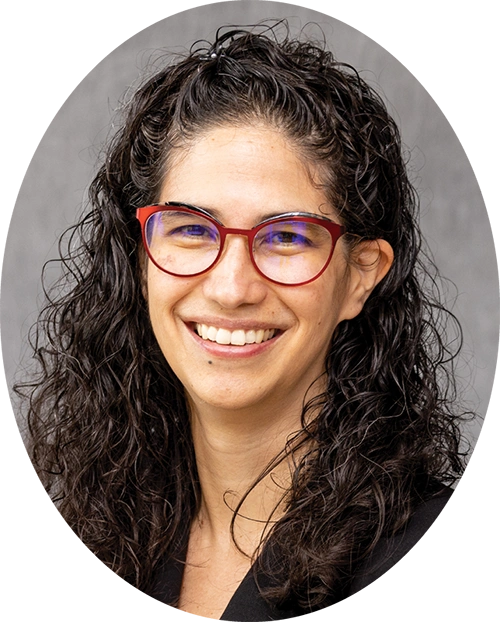
Nancy Chi Cantalupo
Associate Professor of Law
- Civil Rights Approaches to Address Gender-Based Violence as Gender Inequality, Gender-Based Crime: Learning Through Experts and Cases (Kathleen A. Bogle ed., forthcoming 2023)
Moot Court team qualifies for national final rounds of ABA’s National Appellate Advocacy Competition
The team also took home the second-place brief award, Navarre earned the second-place oralist award, and Burgam received the fourth-place oralist award. The team was undefeated in the regional, beating teams from Ohio State University Michael E. Moritz College of Law, University of North Carolina at Chapel Hill School of Law, University of Colorado Law School and Seton Hall Law School. The Brooklyn regional saw competition from 32 teams.
This year, a total of 173 teams from 100 ABA-approved law schools across the country will compete in six regionals, with the four winners of each regional advancing to the final rounds in Washington, D.C.

2023 Wayne Law Jaffe/Taft Transactional Law Invitational hosts 19 schools, names winners
The invitational is part of a skilled learning experience created and supervised by Associate Professor Eric A. Zacks and Taft attorney and Wayne Law alumnus Justin Hanna. Third-year students Muhannad Al-Ujayli, Muhammad Siwani, Trevor Lloyd and Andrew Vailliencourt served as chairpersons of this year’s competition. The program is supported by the Jaffe Transactional Law Competition Fund, established in 2018 by Jaffe/Taft.
The competition helps students develop drafting, negotiating and counseling skills, with two-member teams representing a buyer and seller involved in a complex acquisition. After a semester of drafting and revising, the negotiations brought the teams together for two rounds of competition. The panel of judges — composed of 20 attorneys — offered feedback following the completion of each round.
■ class notes
We welcome alumni news
- Send news of your professional accomplishments and your high-resolution headshot to lawalumni@wayne.edu.
- Did you move or get a new a job? Update your information at alumni.wayne.edu.
1960s
Ronald B. Rader ’66 was honored by the Florida Bar as a member with a 50-year cumulative legal practice with the Florida Bar and one or more United States jurisdictions.
1970s
Hon. Terrill J. LaRue ’72 was honored by the Florida Bar as a member with a 50-year cumulative legal practice with the Florida Bar and one or more United States jurisdictions. LaRue served as a circuit judge for the Seventh Judicial Circuit Court of Florida in Volusia County.
Richard G. Himelrick ’74 retired from Tiffany & Bosco in Phoenix. Before retiring, he authored six editions of Arizona Securities Fraud Law: Civil Liability, Defenses and Remedies.
1980s
Pamela Enslen ’81 was appointed executive director of California Community Colleges Foundation’s California LAW Pathways. Previously, she was a senior partner at Warner, Norcross + Judd. Enslen has also been elected to serve her second three-year term on the board of governors of the American Bar Association.
■ in memoriam
IN MEMORY

John R. Coon ’80
Eugene Driker ’61
Nkrumah Johnson-Wynn ’85
Professor Edward Littlejohn ’65
Dennis Levasseur ’85
Guy Silvasi ’12
Hon. Jamie Wittenberg ’02
The Lighter Side of Wayne Law

Pet therapy day

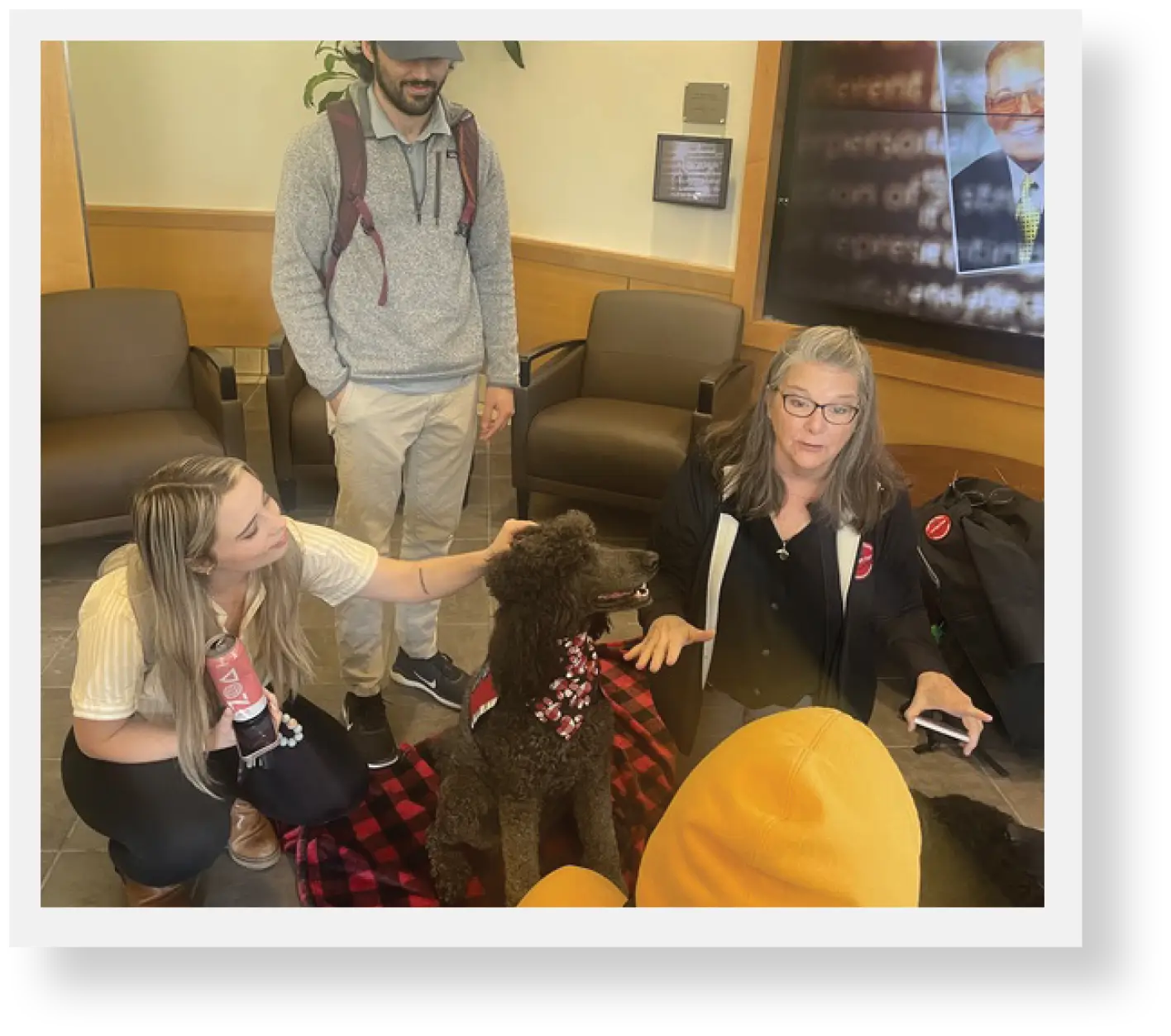

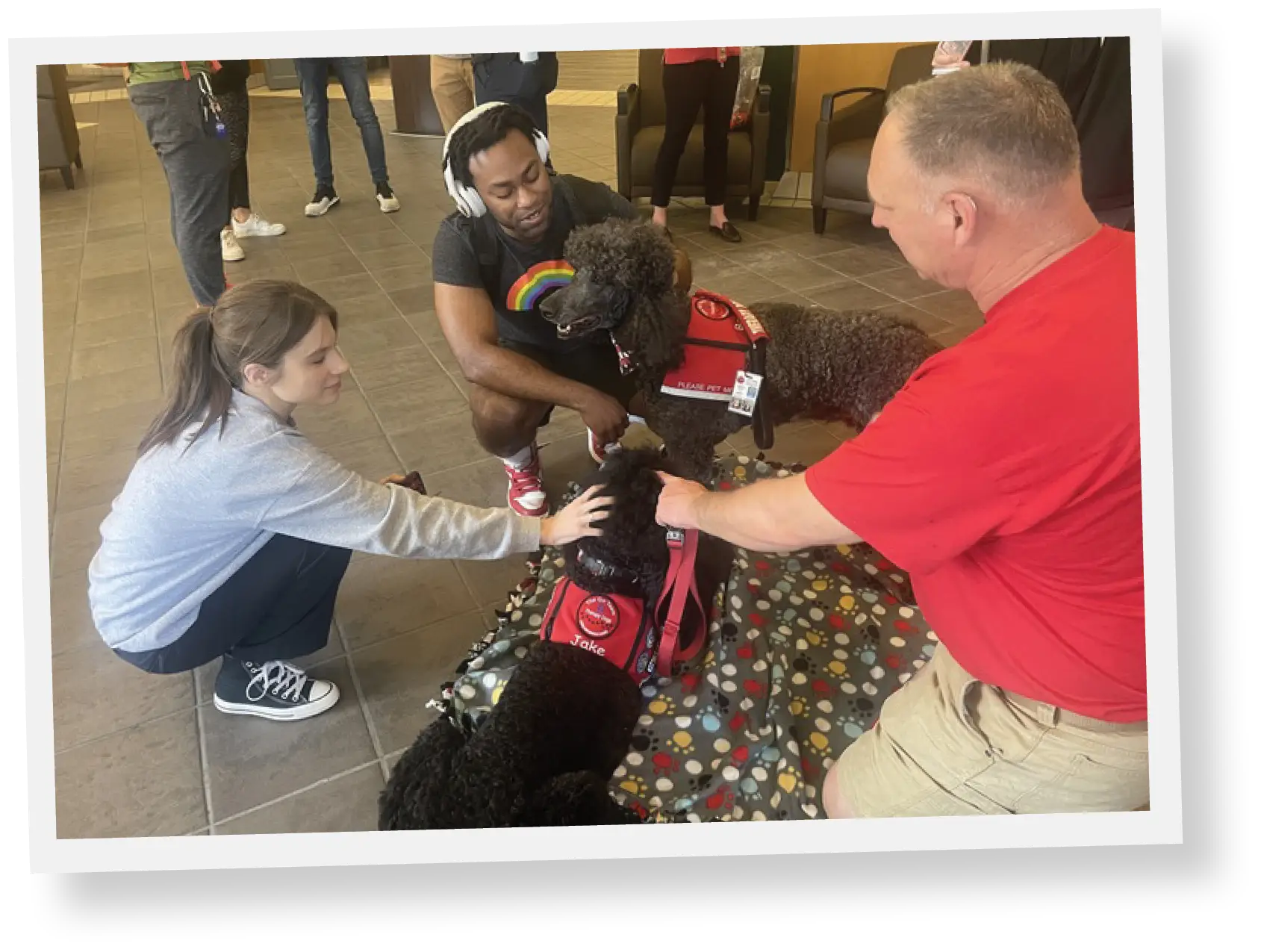
Halloween
